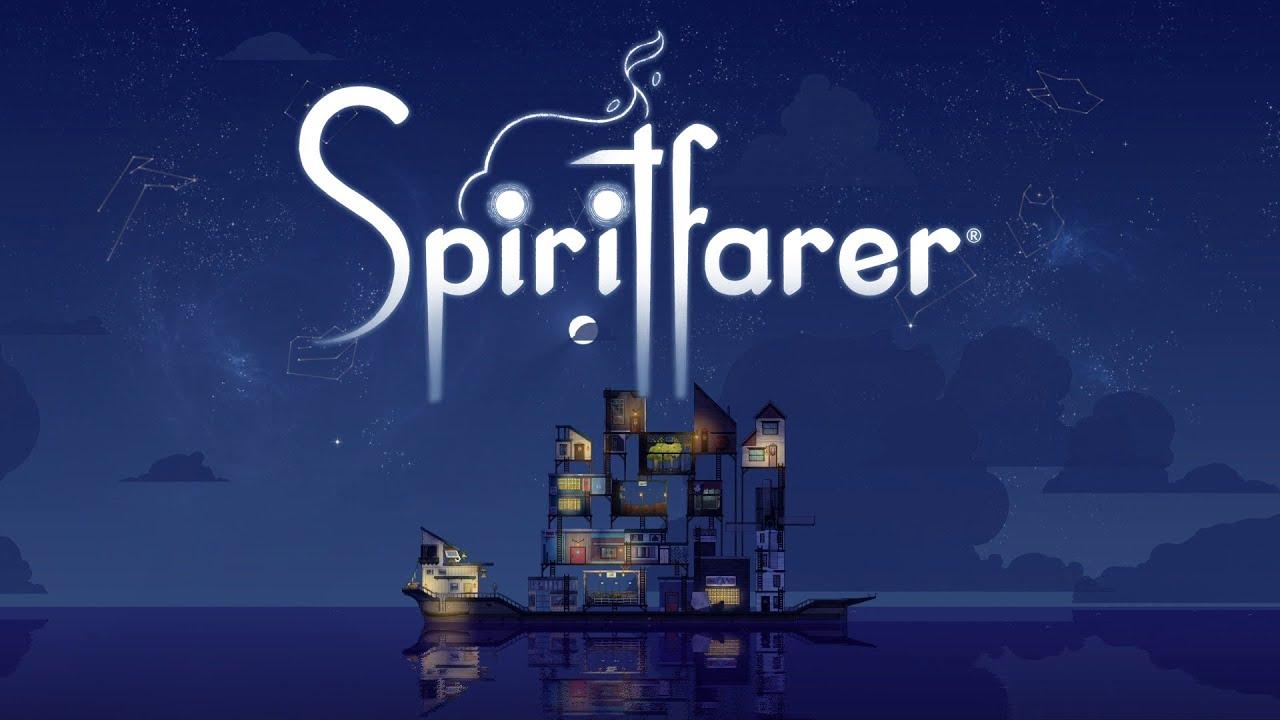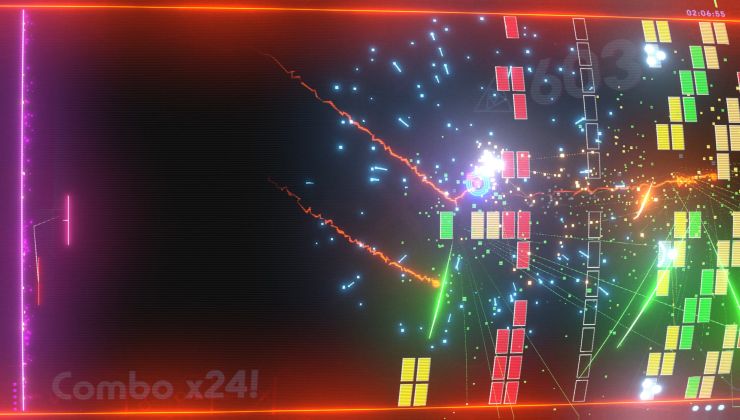Thunder Lotus have been doing well with Spiritfarer, with it going on to receiving very warm reviews and it's now available on even more stores for additional choice but it's not without issues.
Spiritfarer is an absolutely gorgeous game, that truly hits the right mark in many ways from how it tells the stories of the dead and how you deal with death to the amazing art and audio. However, Thunder Lotus seemed to completely miss the mark in one of the stories it told. It involves a character with a wheelchair, with the character mentioning how in death they would be "free from my dreaded wheelchair" which it has been said is ableist writing.
Thunder Lotus have now issued a formal apology on Twitter, noting that they will be correcting it and learning from it. Considering the setting and how the game is all about caring for people and being empathetic, to me it doesn't seem like it was intentional ableism. Considering they owned up the issues in such a quick and respectful way, I'm certainly not going to be warning anyone away from it (and neither is the person who initially mentioned the issue). Overall, Spiritfarer is a genuinely incredible experience.
As for the availability of Spiritfarer it can now be found across these stores: Humble Store, GOG, itch.io, Steam and Stadia.

Direct Link
Good on them for taking this as an opportunity to improve their craft rather than get defensive about it. The writing overall is top-notch (and that particular character is among my favourites) even if I did find the ending unsatisfying.
Meh, I dont' see the issue frankly. If the char doesn't want to be in the wheel chair, that's the char's choice. it doesn't represent all people in a wheel chair.
Sorry to break it to you, but fictional characters can't make choices on account of not existing. The choice was the author's all along!
Meh, I dont' see the issue frankly. If the char doesn't want to be in the wheel chair, that's the char's choice. it doesn't represent all people in a wheel chair.
I read a few of their replies to folks with similar responses to yours, and a big part of the issue was regret that they (and, presumably, you) didn't actually consult any wheelchair users while writing to see what they thought of it, a failure in due diligence. Something of particular importance in a game all about empathy and understanding others' perspectives. And when called out, they understood that they should have done so and are in the process of working it out.
I can identify with not seeing the issue, I didn't either until it was brought up. But that's exactly the point, isn't it?
Meh, I dont' see the issue frankly. If the char doesn't want to be in the wheel chair, that's the char's choice. it doesn't represent all people in a wheel chair.
I read a few of their replies to folks with similar responses to yours, and a big part of the issue was regret that they (and, presumably, you) didn't actually consult any wheelchair users while writing to see what they thought of it, a failure in due diligence. Something of particular importance in a game all about empathy and understanding others' perspectives. And when called out, they understood that they should have done so and are in the process of working it out.
I can identify with not seeing the issue, I didn't either until it was brought up. But that's exactly the point, isn't it?
Usually I don't care to comment, as no matter what one says on the internet in this day and age, someone will get offended.
I have a mother who is bound to a wheelchair, there is nothing more she wishes for than to get rid of it. The authors thoughts reflects hers perfectly, she would have burned the wheelchair if she could. She hates it with a passion, and I'm sure others do too.
I'm sick and tired of people getting offended on the behalf of a group they don't even communicate with or associate with, all to virtue signal to get likes and thumbs ups and what not. Then again, me saying something won't change shit, so I'll show myself out the door.
Meh, I dont' see the issue frankly. If the char doesn't want to be in the wheel chair, that's the char's choice. it doesn't represent all people in a wheel chair.
I read a few of their replies to folks with similar responses to yours, and a big part of the issue was regret that they (and, presumably, you) didn't actually consult any wheelchair users while writing to see what they thought of it, a failure in due diligence. Something of particular importance in a game all about empathy and understanding others' perspectives. And when called out, they understood that they should have done so and are in the process of working it out.
I can identify with not seeing the issue, I didn't either until it was brought up. But that's exactly the point, isn't it?
Usually I don't care to comment, as no matter what one says on the internet in this day and age, someone will get offended.
I have a mother who is bound to a wheelchair, there is nothing more she wishes for than to get rid of it. The authors thoughts reflects hers perfectly, she would have burned the wheelchair if she could. She hates it with a passion, and I'm sure others do too.
I'm sick and tired of people getting offended on the behalf of a group they don't even communicate with or associate with, all to virtue signal to get likes and thumbs ups and what not. Then again, me saying something won't change shit, so I'll show myself out the door.
You can point out possible ableism without being offended, actually I don't see any one being offended here at all. Yes people in wheelchairs are not a homogenous group exactly like people without wheelchairs.
This has more to do with not painting disabled people as stereotypes than being offended.
What’s the difference between this and telling a male writer he can’t write a female character because he’s not one?
This is a dangerous slope.The obvious difference is that nobody told this dev he can't write a character in a wheelchair. Just that he should be careful not to perpetuate harmful stereotypes. You're allowed to point those out, and it's not the same as censoring them.
What’s the difference between this and telling a male writer he can’t write a female character because he’s not one?
This knee jerk outrage over every little thing is just absurd imo.So is knee-jerk outrage over perceived knee-jerk outrage. Please don't invent drama where there is none.
The problem is some people seem to be focused on finding thing that trigger them in a negative way, so they can complain. I don't see how a real disabled person wouldn't hate their disability, chair, or whatever else, just like an enabled person would hate their weight, height, mental/social/etc abilities, and so on. Sure, not everyone hates stuff. But then why can't people acknowledge the differences between them, despite their similarities?
The game is about a spirit farer. As far as we know, there are no spirits and there are no people who guide dead people to another place. There's nothing wrong with a fictional character who wants something that a real person doesn't want. It's a story. Stop slamming creators for "isms" over fictional works.
As a real person I can't have all the positive and negative attributes of fictional characters, and it makes no sense for me to object to fiction or to get offended over something like that. How about we focus on the great parts of what people do, and if we think it's so important to point something out, why not do it in such a manner that others don't have to apologize?
It's not the point of most works to replicate some real-life people, situations, etc, but to create something that triggers certain responses in the audience.In this case some interactions in the game apparently triggered a negative response in a player with a personal stake, and based on the feedback the developer decided that they wanted to do something about it. I assume this wasn't the kind of response they were looking to elicit in the audience. Of course, they could have responded that the character behaves the way they do because they want them to have a certain flaw or something, but seems like that was not the case. Should we tell the developer that they are not allowed to change their own game?
The people reacting in a negative way to this apology seem to do so out of a misguided principle, and not because this will somehow make the game worse. They don't seem to even care about the details that much. Is it just the macho notion that compromises and apologies are somehow shameful? That they're signs of weakness? As if honestly engaging and compromising with someone is always somehow letting down everyone else.
Is it just the macho notion that compromises and apologies are somehow shameful? That they're signs of weakness? As if honestly engaging and compromising with someone is always somehow letting down everyone else.It can certainly interpreted this way as well, but it's not the case here. Go down a few pages of tweets in [this thread](https://twitter.com/PunkinOnWheels/status/1300956699596124161) to see the negative reactions.
If you've been active on Twitter for at least of few months, you're probably aware of how people gang up on others for some reason, and it usually gets seriously ugly, no matter how polite you to talk to them. No wonder an indie developer who can't afford bad publicity wanted to fix this complaint as quickly as possible without even trying to bring up valid points. I don't believe the developer really thinks there aren't disabled people who hate their wheelchairs, who had no problem at all with the game characters.
Had the complaint come from an enabled person simply ranting about something in the game, as it happens with every game, the situation could've been addressed reasonably. But not immediately addressing the negative reactions of a disabled person, who happens to be a girl, who describes herself as "aggressively disabled and queer", easily brings a lot worse reactions than the existing ones in the thread I mentioned.
We, as a society, are going through a phase of shaming and virtue signaling. There's almost zero chance to get away from an angry mob who shows up to "dismantle" the accused person(s) if the accuser is part of a minority or not in an apparent position of power.
In that Twitter thread someone said:
I played this game and I'm trying to understand the problem. I came away thinking the problem wasn't the chair, but that due to his paralysis and wheelchair people were treating him differently and belittling him. The character even says the issue isn't the chair in game.
Then in this very forum thread we learned that someone's mother hates her wheelchair. So while the Twitter complaint is legitimate, the character in the game is just as legitimate (and it's fiction anyway). There was no need to fix something that wasn't broken in the first place.
We can all cherry pick character traits and dialogs that offend us in some game, movie or other works of artistic expression - if we take it personally. But should we feel offended? Is that more important than realizing that plenty of people like us are also different from us? If we go down the path of getting easily offended, there's no hope for people to ever get along. Getting along requires us to acknowledge and respect differences, as well as the fact that maybe except for breathing, nothing is for everyone. What I like/love, others can easily dislike/hate. [No game can make everyone happy](https://steamdb.info/stats/gameratings/) - not even the top rated games, they still have negative ratings.
"Learn how not to offend, but work even harder to not be offended." - [spaceXcentric](https://youtu.be/JTZvctnqP9s?t=277)
We, as a society, are going through a phase of shaming and virtue signaling.Both have always happened in any social community that ever existed, and there has never been a society or a time when one or the other was measurably absent. People have always been shamed to compliance (just look at religious communities in all their forms throughout history) and people have always "virtue signaled" even if the term is quite recent. Please don't ask for examples or I'll just assume you're being insincere.
If you've been active on Twitter for at least of few months, you're probably aware of how people gang up on others for some reason, and it usually gets seriously ugly, no matter how polite you to talk to them.I'm happy to say I've never been active on any social media. And the problems you describe were obviously always there. Social media facilitates and amplifies certain types of communication. That's just inevitable.
The emergence of truly global communities simply got rid of any filters and inhibitions that moderate our social behaviour by granting relative anonymity and making our peers seem distant and insignificant, thus amplifying existing problems but not really creating new ones. The phenomena you bemoan are not exclusive to social media or in any way caused by the technology.
I avoid social media simply because I don't see how it would make my life better in any way, but I don't see the point in blaming social media in general for the behaviour of people using it. Also, people who complain about virtue signaling tend to do that while signaling their own virtue and shaming those they disagree with. Just look at certain populist politicians complain about snowflakes, and then melt down completely at the tiniest perceived slight.
In the end, I'm sure you'll agree that we have no right to tell the developer what they should or should not do. It's presumptuous to assume you know what went through the developer's head. The whole negative publicity thing would have been sufficiently well handled with a message in the vein of "we acknowledge the issue and will try to do better in the future", sincere or not, so I'd like to think they actually did agree and weren't just doing damage control.
People have always been shamed to complianceThat's true. The correct way to put it is that we're going through a new wave of shaming and virtue signaling, and it's still wrong. I guess the best thing to do is always call it out and to keep hoping that we will move past such social behavior.
The phenomena you bemoan are not exclusive to social mediaThe anonymity or the mere physical distance between those who post online make some people post seriously vile things that they likely don't do in person. Even I got threats of physical beating, through electronic means, for refusing to volunteer my time to further assist someone with his problem with a free software, but when I actually met the guy, in real life, by pure chance, he acted like nothing happened. Social media can actually be worse than real life in various circumstances. It's a serious thing, so there's no need to downplay it to people bemoaning it. So when it happens, it has to be called out.
I don't see the point in blaming social media in general for the behavior of people using it.I specifically blamed the people who do this. The social media is simply their avenue.
In the end, I'm sure you'll agree that we have no right to tell the developer what they should or should not do. It's presumptuous to assume you know what went through the developer's head.True. I didn't claim to know the truth, but "I don't believe the developer really thinks..." and that there was no need to fix what wasn't broken in the first place.
The whole negative publicity thing would have been sufficiently well handled with a message in the vein of "we acknowledge the issue and will try to do better in the future", sincere or not, so I'd like to think they actually did agree and weren't just doing damage control.See, this is where the flip side of the coin really stands. Some people overreact online, others fake a reply, and some by standers are happy as long as there's a message, sincere or not. Why do fake damage control?
If we really want to evolve as a society, we're supposed to have an honest and civilized talk, and learn from it. It's fine if we don't agree on everything, and it's not an offense to think differently. But talking is essential, and so is to learn to empathize so we can offend less, and also learn how to not be offended to the point we react like that. Because what applies to us doesn't apply to others.
Games, movies, art, they can strike chords in people who really look into those creations. It can be both good and bad, but I'd venture to say that the majority are not designed to offend people in general or in particular. The role of artistic expression is to offer people a distinct environment where they can place themselves to discover new things about the world, about people, and even themselves. That kind of a discovery is supposed to make us wiser and more considerate to all kinds of people.
[The Imitation Game](https://www.imdb.com/title/tt2084970/) and [Hidden Figures](https://www.imdb.com/title/tt4846340/) are two great examples of more recent movies that some people can use to "grow up" and understand how important it is to act like human beings. And it's completely reasonable to say that it's not just a category of people who need to better themselves. We're broken in different ways, and instead of becoming angry and loud with each other, it would be more effective and a lot more peaceful to help each other improve. It's not an easy thing to do, but it's well worth the effort.










 How to set, change and reset your SteamOS / Steam Deck desktop sudo password
How to set, change and reset your SteamOS / Steam Deck desktop sudo password How to set up Decky Loader on Steam Deck / SteamOS for easy plugins
How to set up Decky Loader on Steam Deck / SteamOS for easy plugins
See more from me